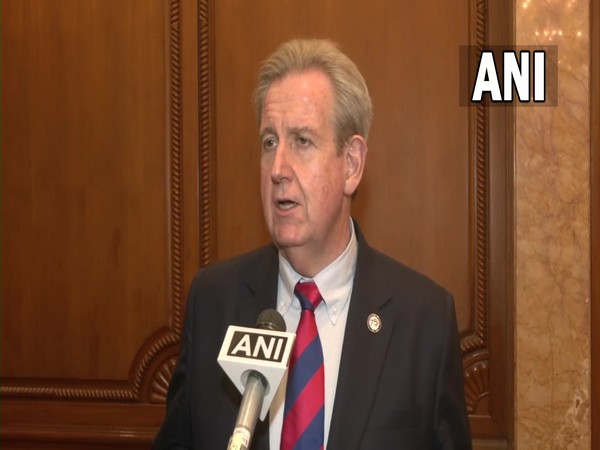Kochi [Kerala], April 28 (ANI): ASEAN member states, Australia and India need to collaborate and work towards addressing ocean health and aim for the development of smart ports through the Indo-Pacific Oceans Initiative (IPOI), said Australia’s High Commissioner to India Barry O’Farrell on Wednesday.
O’Farrell made these remarks during a Dialogue on Indo-Pacific Oceans Initiative (IPOI) organised by Centre for Public Policy Research (CPPR), in collaboration with Monash University. This event was organised with support from the Department of Foreign Affairs and Trade (DFAT), Australia.
Prime Minister Narendra Modi had announced IPOI at the 14th East Asia Summit in Bangkok in 2019. The Indo-Pacific Oceans Initiative is an open, non-treaty-based, inclusive platform for cooperation in the Indo-Pacific region. Australia and Japan have already taken the lead on the Marine Ecology and Connectivity pillars, respectively, while France and Indonesia have taken up the Marine Resources pillar.
The latest conference in Kochi was aimed to strengthen Australia-India relations, particularly towards shaping maritime cooperation in the Indo-Pacific to support an ‘open, inclusive, resilient, prosperous and rules-based maritime order.’
Speaking at the inaugural session, Barry O’Farrell also stressed the need to co-operate in the Indo-Pacific amid the rising multi-polar world scenario.
Michael Costa, Deputy Consul General for South India at the Australian Consulate-General, Chennai brought out the need for dialogue and diplomacy in the region. He cited Canberra’s plans for further bilateral and multilateral agreements with New Delhi, including three package initiatives worth $290 billion: Bay of Bengal maritime partnership, Bay of Bengal connectivity partnership, Bay of Bengal energy partnership.
Former Director-General of the Indian Coast Guard, Vice Admiral M P Muralidharan mentioned the pillars of IPOI – maritime ecology, security and marine resources, that are crucial in establishing common points of interest and cooperation between countries.
The issue of marine litter was widely discussed and deliberated. Dr. S Bijoy Nandan, Professor, Department of Marine Biology, Microbiology and Biochemistry & Dean, Faculty of Marine Sciences, Cochin University of Science & Technology (CUSAT) introduced its relevance in one of the sessions and raised concerns on how millions of tonnes of plastic go into landfills and oceans, instead of getting recycled. Dr. Vijay Sakhuja, in the session on Smart Ports and Supply Chains in the Indian Ocean, spoke about the essentiality of smart ports, green ports and automation.
Capt. Martin A. Sebastian highlighted the involvement of organised crime networks in transportation of illegal goods into Indian ports and the long term efficiency of automation and Artificial Intelligence in building smart ports.
The Plenary session chaired by Dr. T V Paul gave a detailed insight into the role played by Kerala in the historical trade connections and maritime relations with West Asia, Southeast and East Asia, etc.
He also enlightened the session by citing examples of the naval capacities of the southern coast of India. The common thread weaved across two days of the conference was the hope of cooperation among ASEAN member states, Australia and India for a strategically, secure, and economically more efficient and progressive Indo-Pacific. (ANI)


